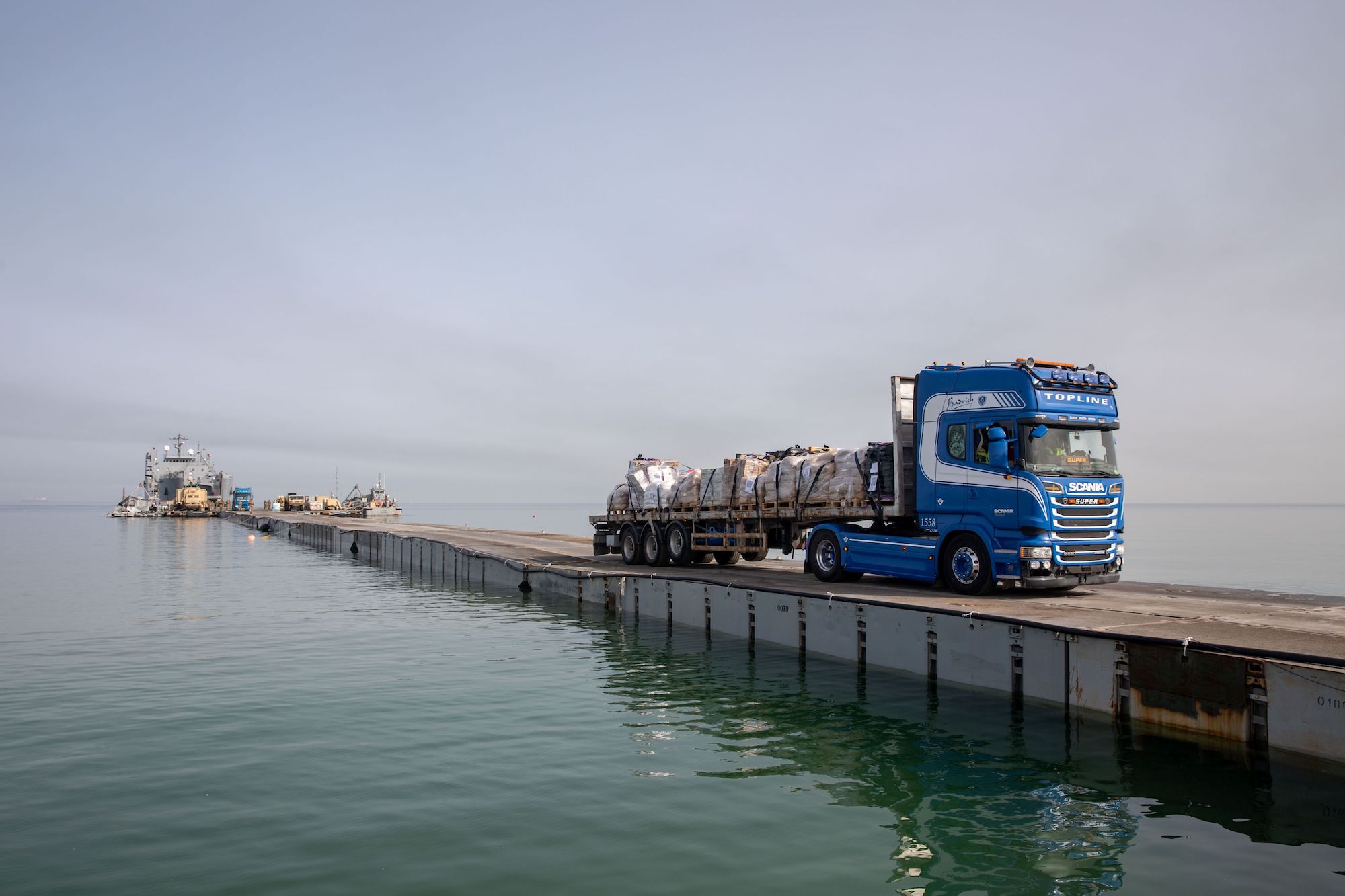Opinion: Gaza Pier Mission – Who is Responsible?
Army Watercraft: who is responsible? I am for one, but there are many others. By CW4 Michael W. Carr, US Army Marine Warrant Officer (Retired) I am responsible for Army...

A DoD-contracted driver transports humanitarian aid across the JLOTS Trident Pier before entering the beach in Gaza May 19, 2024. U.S. Army Photo
The Department of Defense Office of Inspector General (DoD OIG) has released a critical evaluation of the military’s Joint Logistics Over-the-Shore (JLOTS) operations, highlighting significant challenges during last year’s Operation Neptune Solace in Gaza.
JLOTS capabilities, which enable cargo delivery from ship to shore in areas lacking fixed-port facilities, came under scrutiny following the DoD’s humanitarian aid mission to Gaza in 2024. The operation, announced during the March 7, 2024 State of the Union address, involved establishing a temporary pier on the Gaza coast to deliver humanitarian aid to Palestinians following Israel’s military response to the October 7, 2023 attacks.
The evaluation revealed substantial operational challenges. USCENTCOM reported 62 U.S. personnel injuries during Operation Neptune Solace, though the exact circumstances of these injuries – whether duty-related, off-duty, or from pre-existing conditions – could not be determined. The Navy also reported approximately $31 million in damage to 27 watercraft and INLS equipment pieces requiring repairs and maintenance following the operation.
The investigation uncovered systemic issues within both Army and Navy watercraft units, which failed to meet Service-level standards for equipment and unit readiness. Furthermore, the report identified interoperability problems between Army and Navy equipment and command, control, and communications systems, leading to operational damage during both exercises and Operation Neptune Solace.
“The DoD experienced several challenges during Operation Neptune Solace and while performing JLOTS exercises. The DoD must improve and learn from these previous deployments and exercises to meet the demands of future JLOTS missions,” said Deputy Inspector General for Evaluations Michael Roark.
The DoD OIG’s report included three recommendations, focusing on the need for Army and Navy review of their watercraft units and improvements in force structure, training, and equipment acquisition and maintenance. These recommendations remain open, with the OIG monitoring implementation progress.

Sign up for gCaptain’s newsletter and never miss an update

Subscribe to gCaptain Daily and stay informed with the latest global maritime and offshore news
Essential news coupled with the finest maritime content sourced from across the globe.
Sign Up